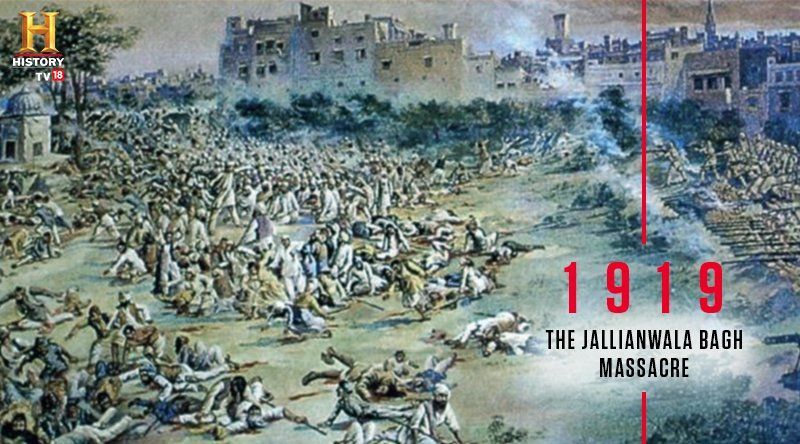
Jallianwala Bagh Massacre – 13 April 1919
The Jallianwala Bagh massacre commemorates 102 years on Tuesday, 13 April 2021.
On 13th April 1919, British troops fired on a large crowd of unarmed Indians in an open space known as the Jallianwala Bagh in Amritsar, Punjab state of India, killing and wounding several hundred people.
The Britishers had banned gatherings at the time and to punish civilians for their 'disobedience', Brigadier-General Reginald Dyer ordered the army to fire into a crowd of thousands of unarmed Indians who had come together to celebrate the festival of Baisakhi, unaware of the order.
The colonial troops entered Jallianwala Bagh and blocked the main entrance behind them to ensure nobody could flee before opening fire on the crowd for about 10 minutes. Many jumped into a well in a desperate attempt to save themselves as the soldiers showered bullets at them.
While the official figure released by the British claimed that a little over 350 people were killed in the massacre, the Congress party claimed that the number was as high as 1,000.
It marked a turning point in India’s modern history, in that it left a permanent scar on Indo-British relations and was the prelude to Mahatma Gandhi’s full commitment to the cause of Indian nationalism and independence from Britain. The Jallianwala Bagh massacre is also known as Massacre of Amritsar.
The only punishment that Dyer, who was lauded for his actions by some in Britain but criticised by the others, had to face was being removed from his post and denied promotion. He was also barred from being deployed in India further.
![]()
Neera Sahni, Research Services Leader, Parramatta Heritage Centre, City of Parramatta, 2021


